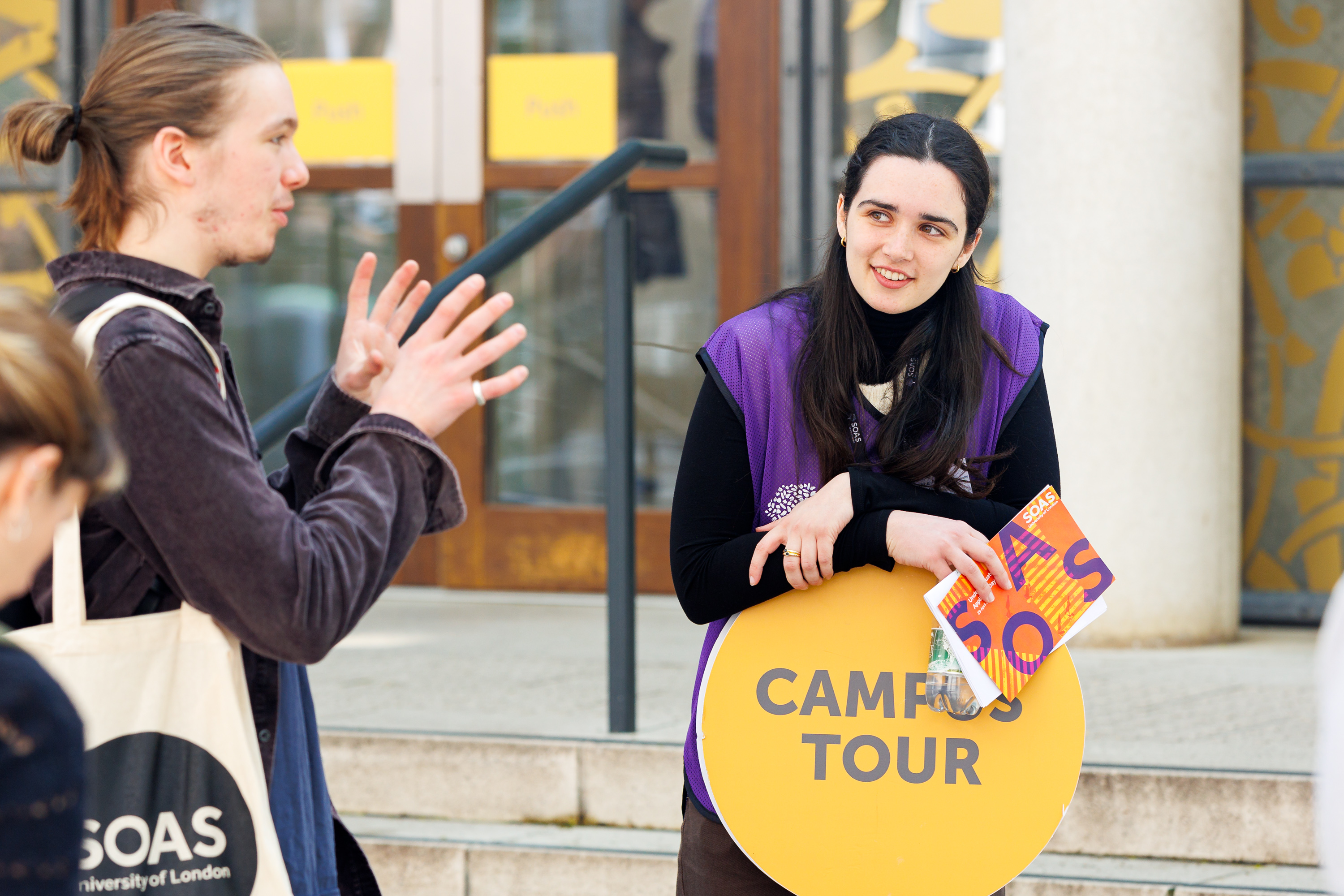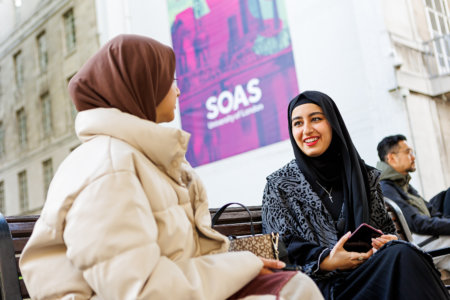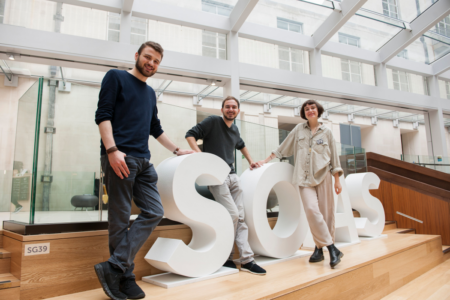From China’s Belt and Road Initiative to North Africa as global “solar battery” to a new BRICS currency, the non-Western world brims with insights into how to solve the unprecedented problems of our global world. No other university brings together expertise of the lesser-understood parts of our world like SOAS University of London.
Its Department of Politics and International Studies has unparalleled regional expertise with an approach to world politics that foregrounds perspectives from the Global South. “If you want to study politics from a non-Western angle, this is the place to be. Most of our academics speak one or more of the languages in the regions they study and spend substantial periods of time in their countries of expertise…Together with our students, we explore politics in the rich and complex worlds of Asia, Africa, and the Middle East,” says Professor Matthew Nelson, Head of the Department of Politics and International Studies. The department combines that unique non-Western perspective with research and teaching of the highest quality globally, ranked fifth in the UK and 17th globally (QS World University Rankings by Subject 2023: Politics).

The Centre for International Studies and Diplomacy is home to the MA International Studies and Diplomacy. Source: SOAS University of London
The department offers two postgraduate programme clusters — one focused on Politics and International Relations; one focused on International Studies and Diplomacy.
The MSc degree in Politics and International Relations has several pathways that combine disciplinary expertise with regional applications. It offers thematic pathways focused on: Political Thought, Conflict, Rights and Justice, and International Security, and regional pathways focused on: the politics of the Middle East, Africa and South, East and Central Asia. The MA degrees in International Studies and Diplomacy highlight diplomatic training and policy-focused teaching.
Time spent abroad is a key feature across all its programmes. These Study Tours are excursions that remind us of our common humanity as students gain first-hand exposure to a region. It’s a manifestation of the department’s motto: “knowing places” (worldwide) and, then, “going places” (professionally).
High-calibre centres boisterous with events and new ideas
Whichever degree programme you choose, you’ll gain membership into the department’s vibrant intellectual community. The department is home to close to 50 academics and more than 1,000 students across its undergraduate and postgraduate programmes. They’re spread across the department’s six research centres, each with a distinctive research agenda, worldwide network and a diverse range of weekly events, from lecture series and talks to exhibitions.
The Centre on Conflict, Rights and Justice brings together scholars exploring human rights, transitional justice, humanitarianism and aid, religion and politics, and civil liberties. For example in January the centre hosted a talk by Dr. Noemí Pérez Vásquez (UN Office of the High Commissioner for Human Rights, Colombia) about her book Women’s Access to Transitional Justice in Timor-Leste: The Blind Letters and the impact of its translation into Tetum. Relatedly, at the , the focus is on finding solutions for the defining issue of this generation: the climate crisis; It focuses on curating a space that where academics work with practitioners to produce cutting-edge research on climate change from the non-West.
Moreover, SOAS hosts the world’s foremost outpost for teaching and research on Taiwan through The Centre of Taiwan Studies. It offers the only MA in Taiwan Studies outside of Taiwan and supports PhD research on Taiwan supervision in a wide range of disciplines. As it’s one of the world’s leading centres for the subject and its academic events, talks here — like the recent Marcin Jerzewski’s “Asia’s City upon a hill? Human rights in Taiwan-EU relations” and Jou Yi-cheng’s “Challenges facing Taiwan’s Democracy in the 2020s” — are often as revealing as they are invigorating.

Numerous events in these centres are collaborations between students and faculty.
Source: SOAS University of London
Theorizing the political from the non-West, the department also hosts the Centre for Comparative Political Thought. “We engage in a variety of activities — from guest lectures to various reading groups — which we aim to assemble in democratic ways, with members and interested parties welcomed to take on ideas and shape them into collective inquiries or projects,” says Professor Hagar Kotef, a Professor of Political Theory. To that end, the centre recently held a seminar series titled “Against the Intersectional Axiom: Subculture of Violence Theory as the Foundation of Contemporary Gender Theory.”
The department is also home to the invigorating intellectual and vocationally-oriented spaces of the Centre for International Studies and Diplomacy and the London Asia-Pacific Centre for Social Science.
Beyond the centres, there are many special series and exhibitions developed from by faculty across the department. As an example, Professor Julia Gallagher and her team on an ERC-funded project on statehood and architecture in Africa curated an art exhibition alongside a speaker series on the theme “Building Africa.” As another, faculty across the politics and history departments at SOAS came together to build the Walter Rodney Collective for Historical Research that hosts an annual seminar series on the “Histories of Capitalism and Race in the Middle East and Beyond.” This year the collective curated a series around the theme “Environment and Infrastructure in the Middle East and Beyond” that brought speakers from across the globe who have written cutting-edge books on the topic. The series was paired with a PG module in politics that read the same books, interrogated them in class and then had the opportunity to discuss the topics directly with the authors through the series.
The politics department at SOAS offers a unique space for students to engage with leading research on the political from a non-Western angle undertaken by faculty within the department, as well as by the vast array of academic, practitioner and artistic guests who come to campus through the faculty’s unparalleled global network.
Interested in SOAS University of London’s Department of Politics and International Studies? Click here to apply now.
Follow SOAS University of London on Facebook, X, LinkedIn, Instagram and YouTube.












